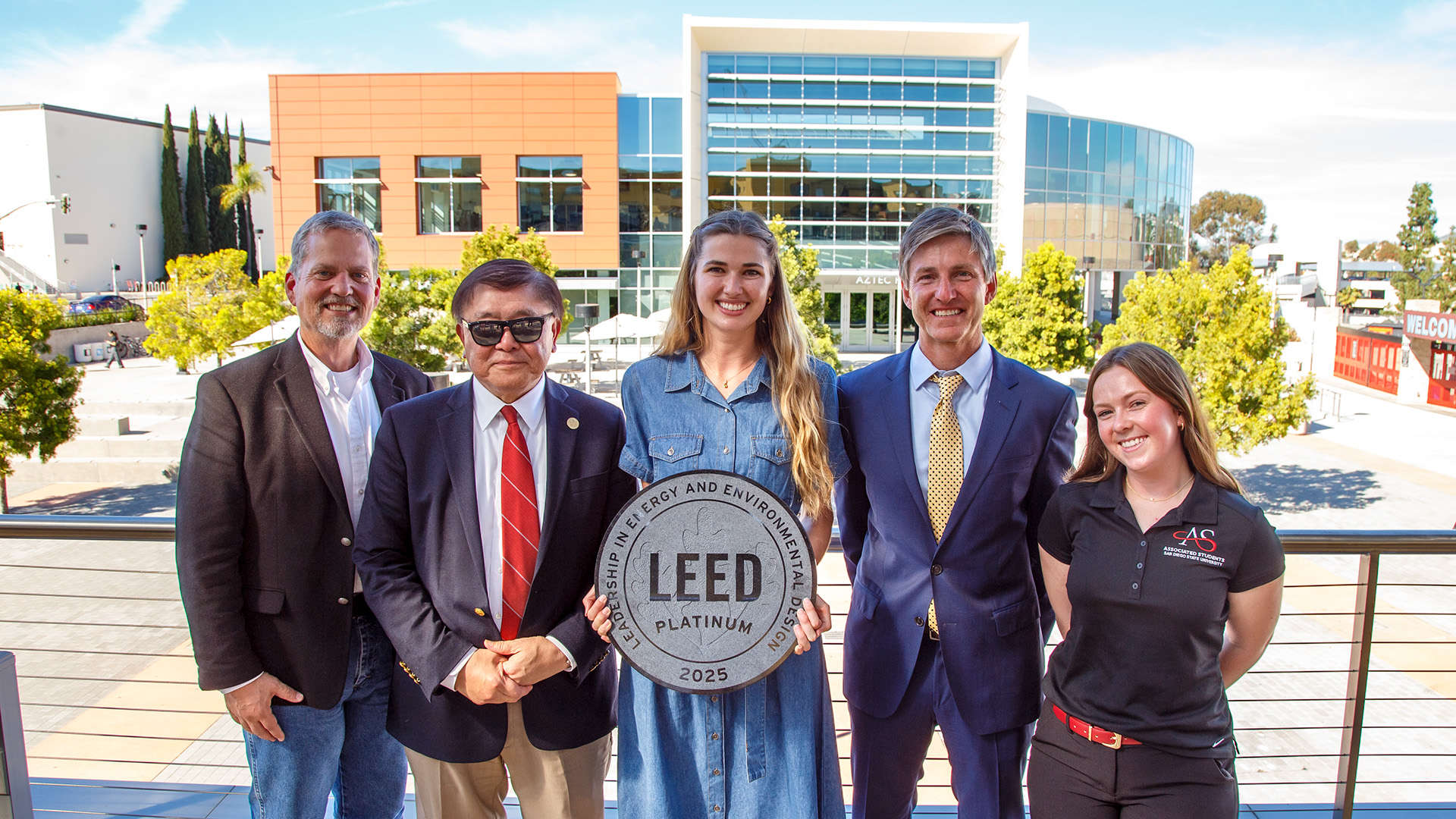SDSU Alumnus Thomas Claypool Creates Sustainable Solutions to Recycle, Repurpose, and Remix Shoes
The Native Shoes co-founder and international business alumnus is dedicated to social and environmental initiatives at his company based in Vancouver, BC.

Growing up in the Chicagoland area, Thomas Claypool began skateboarding at an early age. He wore the classic skate shoe designs of the ‘90s as a teen, and noticed how skateboarding shoes transcended into pop culture. He worked part-time in retail while in high school and after moving to San Diego, at local skate shops.
As an international business student at San Diego State University, Claypool was required to study abroad and take on an internship. “Those experiences propelled me in the direction that my life took in terms of the business-related experiences,” he said.
In Reutlingen, Germany, Claypool connected with a skateboarder sponsored by Volcom. He landed an internship with the European distributor of the global clothing and sports brand, learning all about marketing and sustainability on a global level.
“Europe has always had a green mentality,” Claypool said. “The study abroad and internship really exposed me to a more sustainable and responsible mindset.”
He also learned about testing and quality standards including the hazardous substances that are restricted in textile manufacturing. “I was just starting to have conversations about environmental degradation and how the manufacture of denim, cotton, and outerwear impact the environment,” Claypool said.
Upon his return to the U.S. and graduation from SDSU in 2001, Claypool saw a job posting sent by advisors to recent graduates of the international business program. A German clothing company was looking to get into the U.S. market.
At the time Claypool was heavily involved in developing San Diego’s Washington Street Skatepark. He was on the board of directors for the nonprofit tasked with raising funds and constructing the project as a safe, legal public space for skaters to hone their craft.
Claypool wound up spending eight years with the German company, building its U.S. division, all the while thinking about creating his own brand.
In 2009, Claypool co-founded Native Shoes in which the majority of shoes are injection-molded — a manufacturing process that requires fewer resources than traditional footwear manufacturing. Today, many of the shoes now contain lower impact bio-based compounds, sourced from sugar cane and algae.
New Ways to Recycle
Based in Vancouver, British Columbia, Native Shoes is committed to a continued, lower carbon footprint which it measures via carbon accounting software.
“The complete body of work outlined in Native Shoes’ climate reduction roadmap can be daunting at times, with some required technologies not yet in existence,” Claypool said. “However, making incremental changes such as swapping out the desiccant used in retail boxes from silica packs to dry clay packs, or consistently increasing the bio-based content in raw materials, are examples of some of the small wins which are achievable whilst tackling bigger picture challenges around energy production and consumption in manufacturing.”
Another way Native Shoes seeks to reduce its environmental impact is through R&D into finding solutions for the end of a shoe’s useful life.
The Native Shoes Remix Project employs a proprietary material blend, resulting from ground shoes that have been collected at the end of their useful life — shoes that otherwise would have been destined for the landfill. Shoes that are still wearable are sorted out and donated to those in need.
“Customer participation is a key ingredient to the Native Shoes Remix Project. Without our community supporting this initiative, we cannot achieve our climate reduction goals or give life to our ideas around circular materials,” said Claypool.
Illustrating this thought, in 2021, multidisciplinary designer Irina Flore approached Native Shoes about a collaboration on a furniture design project using repurposed shoe material. The resulting project is named Remix Maison. The unique sculptural furniture pieces have won multiple awards.
Claypool has come full circle by leading a global brand focused on sustainability and environmental stewardship — the same concepts that inspired him during his days as an SDSU student.



